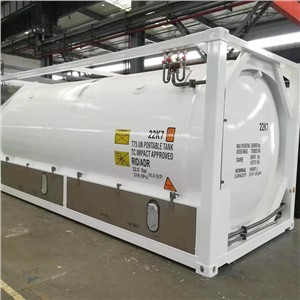Complete a Service List for Garbage Truck Operations

Introduction
The efficient management of waste is essential for maintaining a clean and healthy environment. Garbage trucks play a crucial role in this process, and understanding the services they provide can help municipalities and waste management companies optimize their operations. This article will explore the complete service list for garbage truck operations, focusing on the various types of services provided, maintenance requirements, potential challenges, and tips for improvement. Whether you are a city planner, waste management professional, or simply interested in how garbage collection works, this comprehensive guide will equip you with the information you need.
Types of Garbage Truck Services
Garbage trucks offer a range of services beyond simply collecting trash. Understanding these services can help improve efficiency and responsiveness to community needs. Here are the primary services provided by garbage truck operations:
Residential Waste Collection
Residential waste collection is the most common service provided by garbage trucks, focusing on the regular collection of household waste.
Frequency of Collection
- Weekly Collection
- Bi-weekly Collection
- Monthly Collection
Types of Waste Collected
| Type of Waste | Notes |
|---|---|
| General Trash | Non-recyclable household waste. |
| Recyclables | Items that can be processed again. |
| Organic Waste | Compostable food and yard waste. |

Commercial Waste Collection

Commercial waste collection serves businesses, restaurants, and other facilities with varying levels of waste output.
Service Options
- Scheduled Pickups
- On-Demand Collection
- Roll-off Container Services
Industry-specific Considerations
Different industries may have unique waste requirements, and garbage trucks must be equipped to handle them. For example:
- Food services may require additional cleaning for organic waste.
- Construction sites may produce bulky debris requiring special handling.
Bulk Waste Collection
Bulk waste collection services are designed for larger, heavy items that do not fit in regular trash bins.
Examples of Bulk Waste
- Furniture
- Appliances
- Mattresses

Scheduling and Fees
Many municipalities require residents to schedule bulk waste collections in advance, and there may be fees associated with this service.
Hazardous Waste Collection
Hazardous materials require special handling to prevent environmental contamination and health risks.
Common Types of Hazardous Waste
- Pesticides
- Paint and solvents
- Batteries
Collection Protocol
Communities usually organize specific days for hazardous waste collection with strict guidelines for disposal.
Maintenance of Garbage Trucks
Regular maintenance of garbage trucks is crucial for ensuring their safe and efficient operation.
Routine Inspections
Garbage trucks should undergo routine inspections that include checking:
- Brakes and tires
- Fluid levels
- Lights and signals
Cleaning Procedures
Trash can create odors and attract pests, so regular cleaning of the truck’s interior and exterior is necessary. Cleaning schedules may include:
- Daily cleaning after routes
- Monthly deep cleaning
Repairs and Upgrades
As garbage trucks age, necessary repairs and upgrades should be made to enhance performance, following best practices and manufacturer guidelines.
Challenges in Garbage Truck Operations
Garbage truck services face numerous challenges that affect efficiency and community satisfaction.
Traffic and Route Planning
Urban traffic congestion can significantly impact garbage collection schedules:
- Consider off-peak hours for collections.
- Utilize route mapping software to optimize routes.
Public Engagement and Education
Community engagement is crucial for effective waste management programs:
- Provide education on recycling and waste disposal practices.
- Encourage proper usage of waste bins to reduce contamination.
Compliance with Regulations
Adhering to environmental regulations is critical to operate legally and sustainably.
Improving Garbage Truck Services
Improving garbage truck services can enhance efficiency, reduce costs, and increase customer satisfaction.
Implementing Technology
Utilizing technology such as GPS tracking can streamline operational efficiency:
- Fleet management software can monitor vehicle performance.
- Electronic reporting systems can allow for real-time updates from field staff.
Embracing Sustainability
Garbage collection can adopt eco-friendly practices:
- Using cleaner fuel alternatives.
- Implementing recycling programs to minimize landfill use.
Feedback Mechanisms
Establishing channels for public feedback can improve service responsiveness:
- Online surveys to assess customer satisfaction.
- Community meetings to gather input on waste management.
Economic Impact of Garbage Truck Services
The economic implications of garbage truck services extend beyond direct operational costs.
Job Creation
Garbage truck operations create various employment opportunities, including:
- Drivers
- Mechanics
- Handlers for sorting and recycling
Cost Analysis
Assessing the costs associated with waste management can lead to more informed spending decisions. Key factors include:
- Vehicle maintenance costs
- Fuel expenses
- Waste processing fees
Future Trends and Innovations
Monitoring trends can help organizations stay competitive. Considerations include:
- Smart bins that alert collection services when full.
- Investments in electric garbage trucks for reduced emissions.
Best Practices for Managing Garbage Truck Services
Implementing best practices can improve the effectiveness of garbage truck services.
Training and Development
Ongoing training for staff ensures they remain knowledgeable about best practices, safety, and technology.
Health and Safety Protocols
Maintaining health and safety standards safeguards workers and the community:
- Ensure drivers wear safety gear.
- Establish protocols for handling hazardous waste.
Community Partnerships
Working with local organizations can bolster community outreach and education efforts regarding waste management.
FAQs
What types of waste can garbage trucks collect?
Garbage trucks typically collect general trash, recyclables, organic waste, bulk items, and hazardous materials.
How often do garbage trucks collect residential waste?
Frequency of collection varies by municipality but is commonly weekly, bi-weekly, or monthly.
What should I do if my trash was not picked up?
If your trash was not collected, contact your local waste management service or municipality for assistance.
How are hazardous wastes collected?
Hazardous waste is collected during special collection events or designated days organized by the municipality.
Can I schedule a special pickup for large items?
Yes, many municipalities allow residents to schedule pickups for large items through their waste management service.
What can be done to improve garbage truck services?
Implementing technology, adopting sustainable practices, and actively engaging with the community can enhance garbage truck services.
